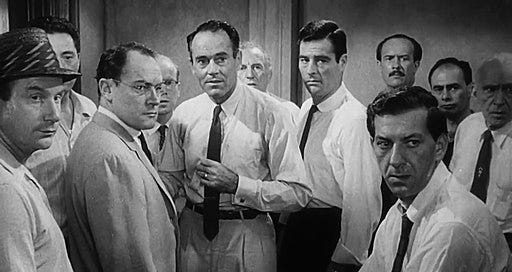Heroes, cynicism, irony and hope
A column in The Economist put it this way:
Still, something is lost, on and off screen, when heroes are stripped of their auras and admiration is soured by cynicism….
You will never be as wise as Henry Fonda’s character in “12 Angry Men”, as intrepid as Jodie Foster’s in “The Silence of the Lambs” or as suave as Cary Grant’s in “North by Northwest”. But in 2024, as much as ever, it would be nice to believe that someone else is, at least until the credits roll. Heroes preside over hierarchies, and those can be abused. But a hero is also hope on legs. (“Holding out for a hero in 2024,” The Economist, https://www.economist.com/culture/2023/12/20/holding-out-for-a-hero-in-2024.)
“Deference is dying,” The Economist’s “Back Story” culture columnist suggests. From today’s perspective, the column suggests, James Bond of the past is a “borderline criminal.” Indiana Jones (sometimes) disrespects the cultures as he ransacks their treasures. Over the past 20, 30 years, we have overdosed on irony.
The heroes second half of the column lauds aren’t simply mortals with superhuman traits, great men (and the occasional woman) facing down evil. The characters played by Fonda, Foster and Grant are ordinary, flawed beings, digging down and finding a resource deep in their psyche when the crunch comes. These hopeful, hope-inspiring heroes move past their flaws when they face a situation in which they recognize, in the words of Judith Shklar (1984, p. 44), “cruelty as the worst thing they can do.” Their humanity hasn’t been squeezed out of them, even as our irony morphs into cynicism.
Richard Rorty (1989, pp. 73-74) called this irony, the opposite of the common sense. And in a way, Rorty’s irony is the opposite the common sense view of irony as embedded cynicism. It is one of the ways we cope with confusion. Rorty’s irony is the source of hope itself. Things are not quite what they seem, and perhaps not as bad as we – in a cynical frame of mind – think.
There are lessons for politics, polities and governance, too. In the left and right of politics cynicism has spread its roots.
Let’s hope, as the “Back Story” columnist seems to, the political leaders can emulate these heroes, rather than claiming the empty heroism built on cynicism, instead of hope. Especially as we head into the many national elections around the world in 2024.
(A somewhat different, business-oriented version of this post appears in the stack How to govern [not like that].)
Rorty, R. (1989). Contingency, Irony, and Solidarity. Cambridge: Cambridge University Press.
Shklar, J. N. (1984). Ordinary Vices. Cambridge, MA: Belknap Press.




